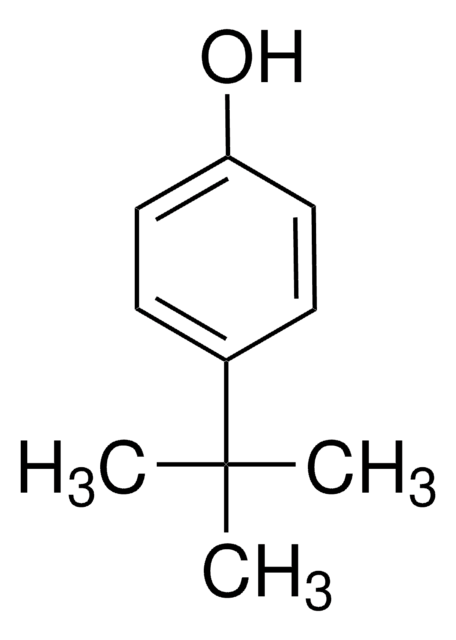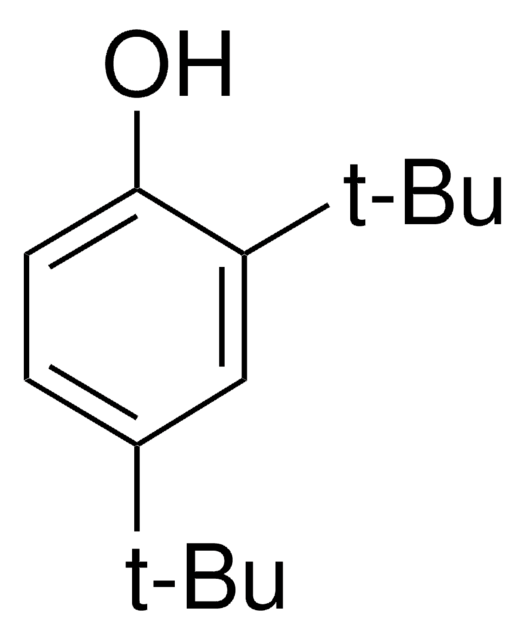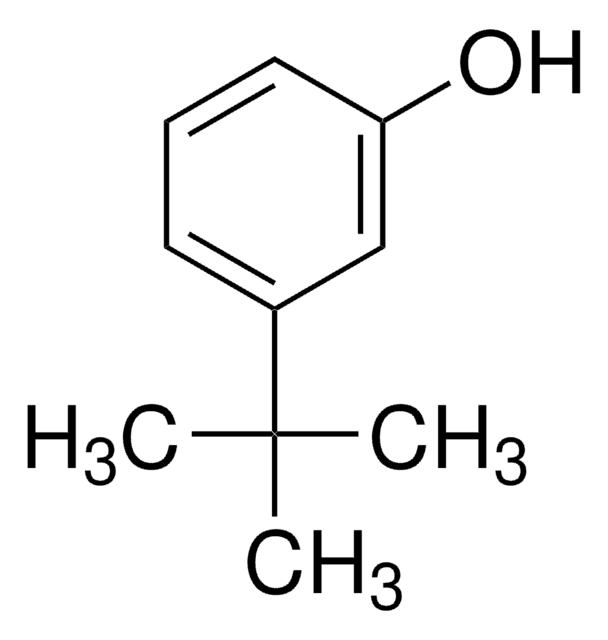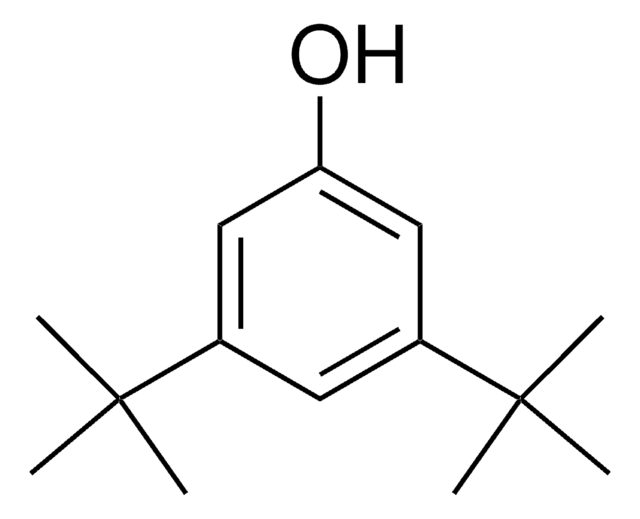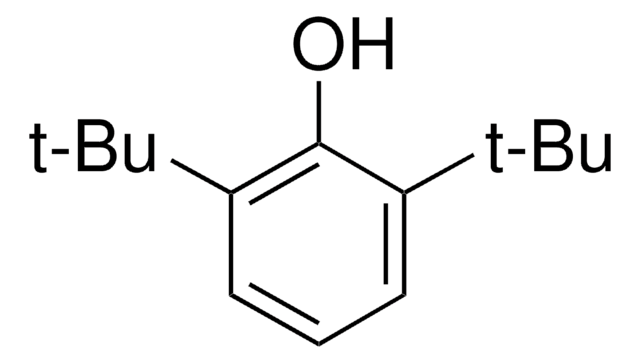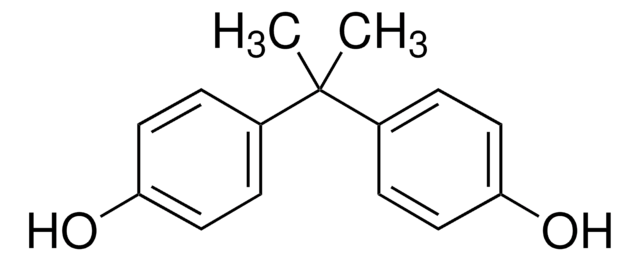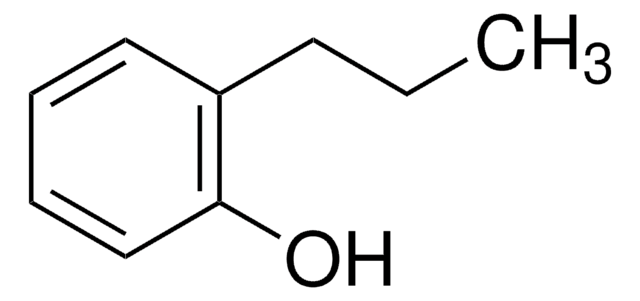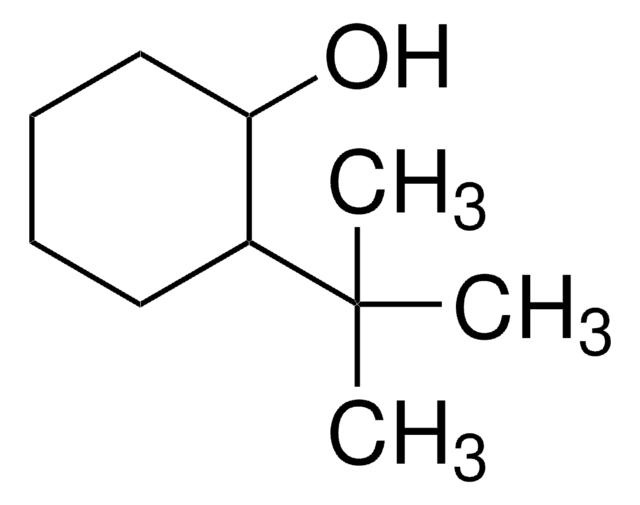About This Item
Recommended Products
vapor pressure
0.05 mmHg ( 20 °C)
Quality Level
Assay
99%
form
liquid
refractive index
n20/D 1.523 (lit.)
bp
224 °C (lit.)
mp
−7 °C (lit.)
density
0.978 g/mL at 25 °C (lit.)
SMILES string
CC(C)(C)c1ccccc1O
InChI
1S/C10H14O/c1-10(2,3)8-6-4-5-7-9(8)11/h4-7,11H,1-3H3
InChI key
WJQOZHYUIDYNHM-UHFFFAOYSA-N
Gene Information
mouse ... Esr1(13982)
Looking for similar products? Visit Product Comparison Guide
Related Categories
Signal Word
Danger
Hazard Statements
Precautionary Statements
Hazard Classifications
Acute Tox. 3 Dermal - Acute Tox. 4 Inhalation - Acute Tox. 4 Oral - Aquatic Chronic 2 - Eye Dam. 1 - Skin Corr. 1B
Storage Class Code
6.1A - Combustible, acute toxic Cat. 1 and 2 / very toxic hazardous materials
WGK
WGK 2
Flash Point(F)
215.6 °F - Pensky-Martens closed cup
Flash Point(C)
102 °C - Pensky-Martens closed cup
Personal Protective Equipment
Certificates of Analysis (COA)
Search for Certificates of Analysis (COA) by entering the products Lot/Batch Number. Lot and Batch Numbers can be found on a product’s label following the words ‘Lot’ or ‘Batch’.
Already Own This Product?
Find documentation for the products that you have recently purchased in the Document Library.
Customers Also Viewed
Our team of scientists has experience in all areas of research including Life Science, Material Science, Chemical Synthesis, Chromatography, Analytical and many others.
Contact Technical Service